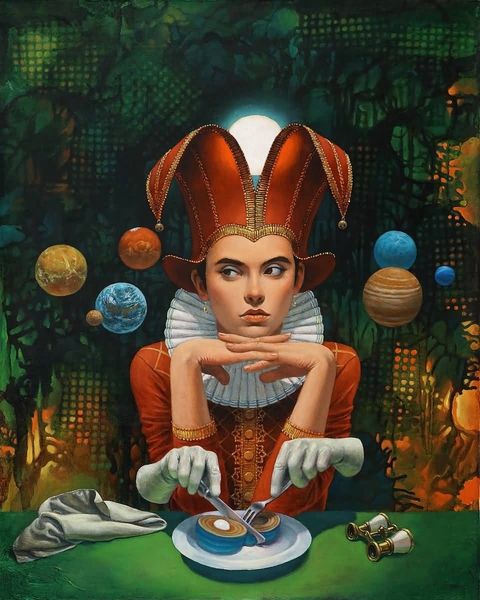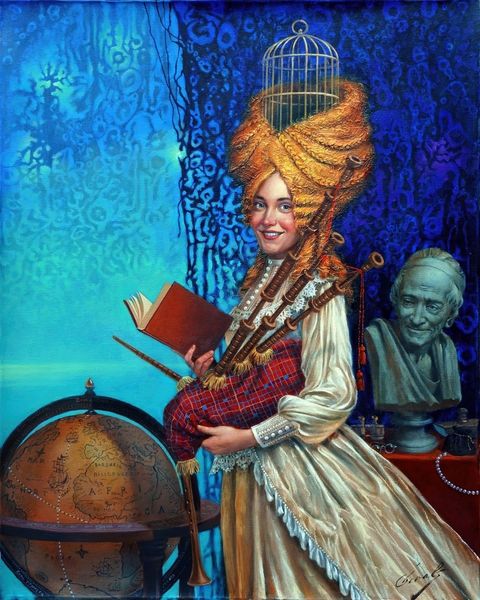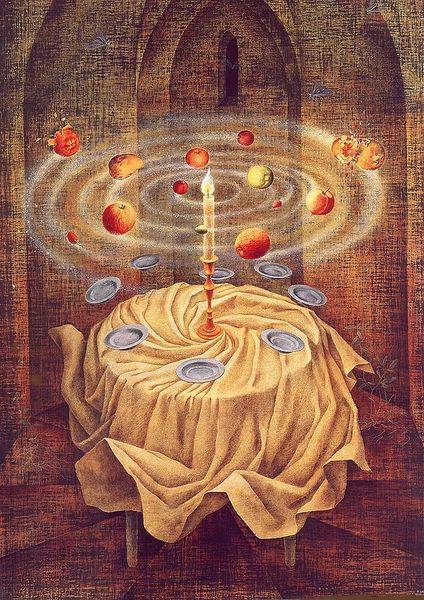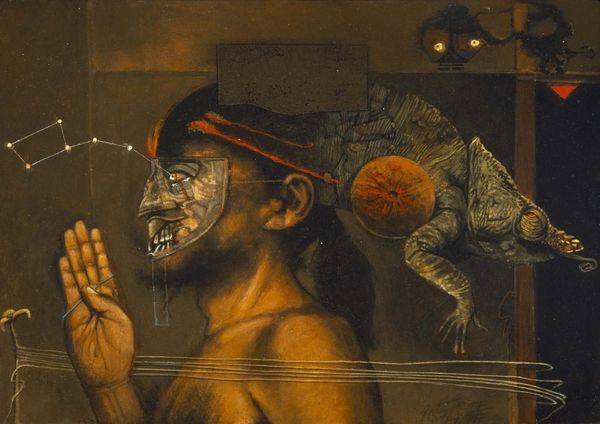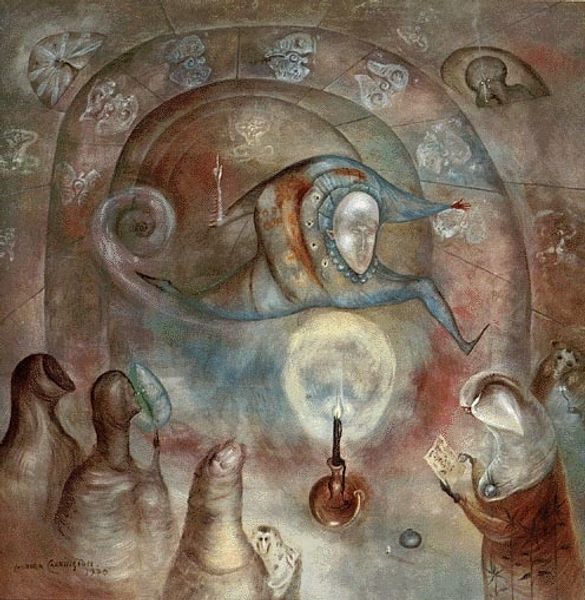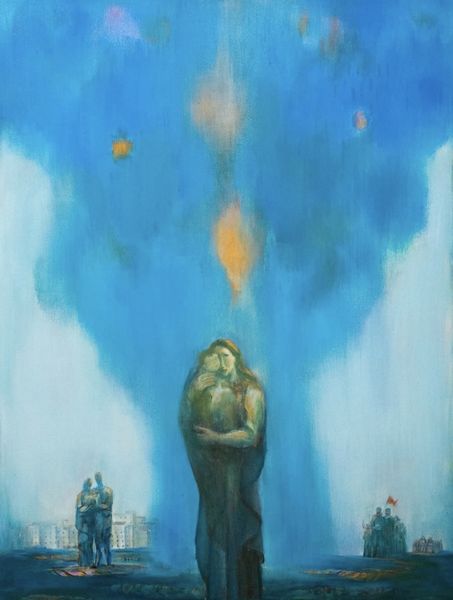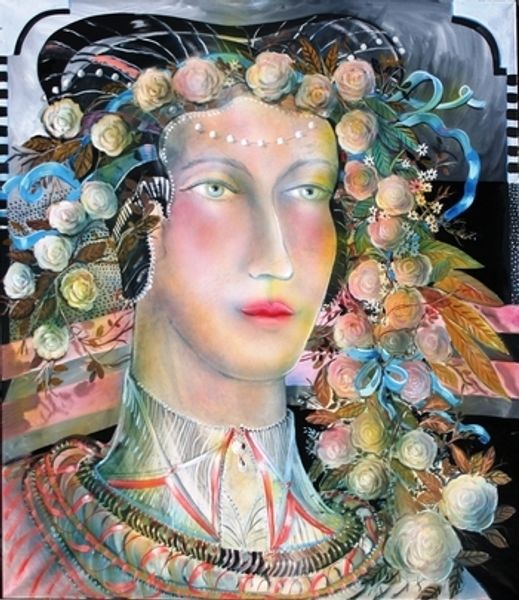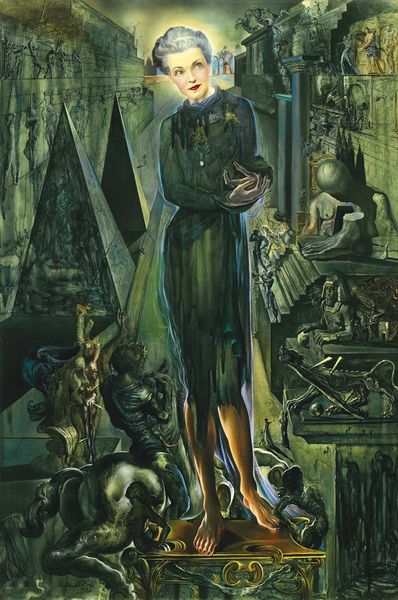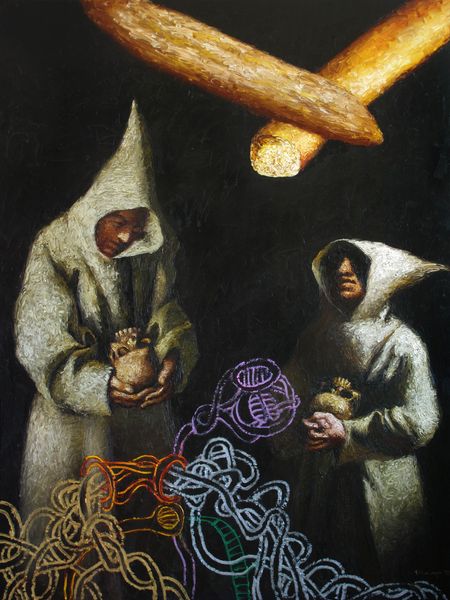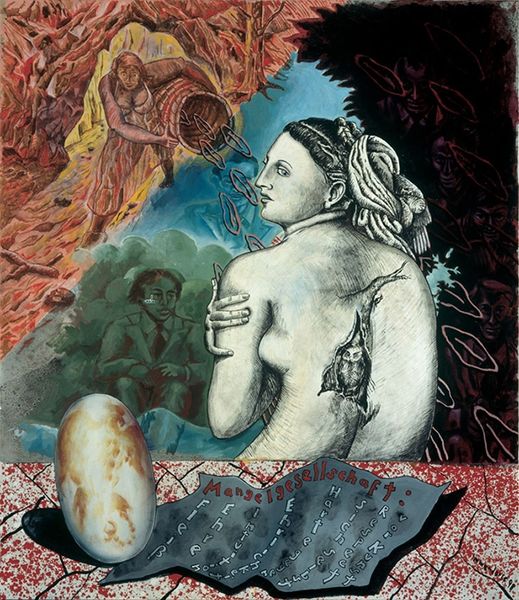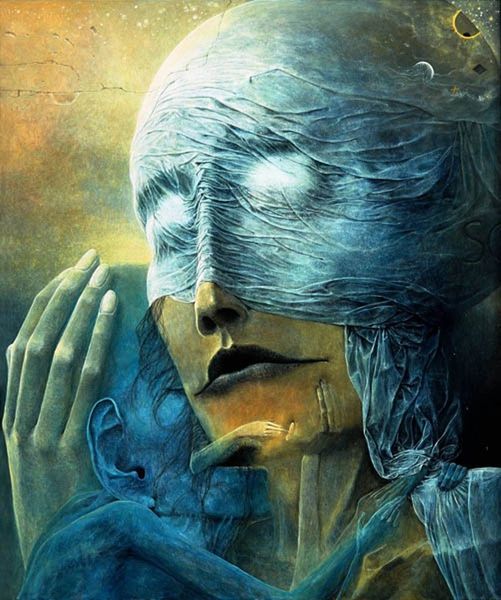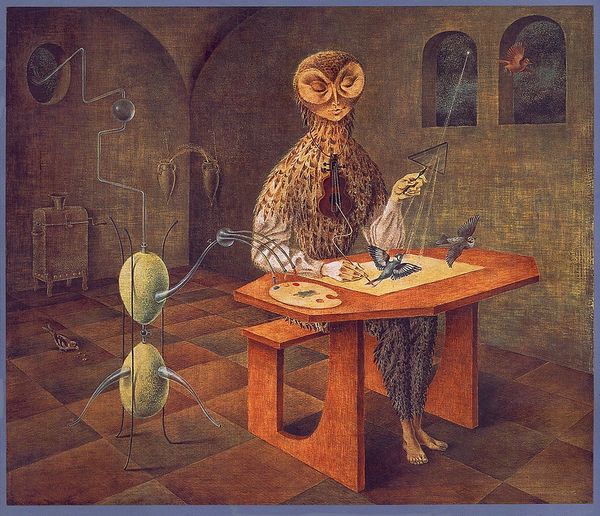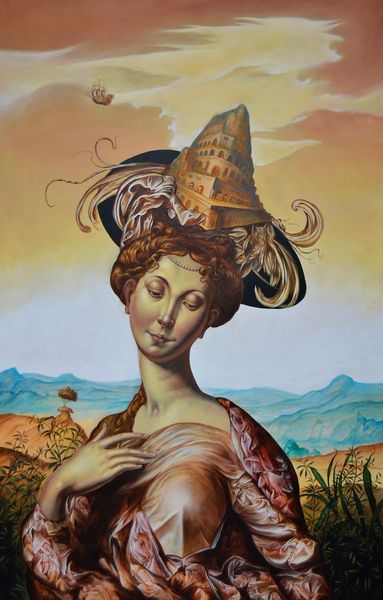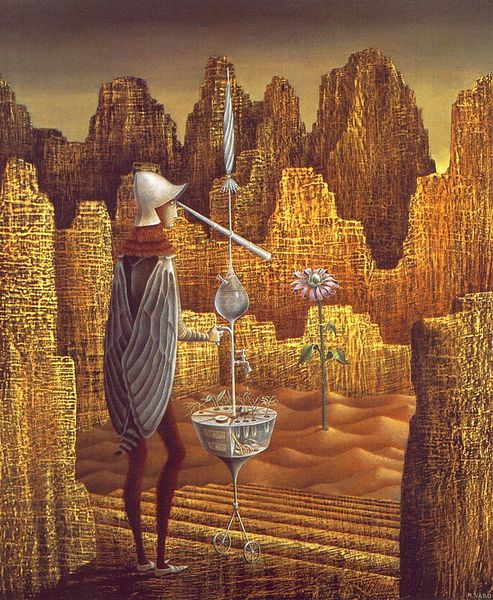
Dimensions: 75 x 60 cm
Copyright: Iurie Matei
Editor: Here we have "Napoleon at the gates of Babylon," painted in 2007 by Iurie Matei, using oil paint. It strikes me as a rather surreal history painting; Napoleon appears to be superimposed with cosmic elements. What do you make of it? Curator: This piece powerfully interrogates the construction of historical narratives and the role of the individual within them. What does it mean to portray Napoleon, a figure synonymous with Western imperial ambition, alongside imagery drawn from ancient Babylonian culture? Matei seems to be asking us to consider the cyclical nature of empire, its ever-present, perhaps even inescapable, recurrence across different civilizations. Editor: The juxtaposition feels a bit unsettling. Is the artist implying that Napoleon’s quest for power was somehow connected to ancient forms of control and conquest? Curator: Exactly. Consider the symbolism: the vast, somewhat desolate space; the ancient relief, the floating orbs... These elements work together to undermine a heroic interpretation. We are prompted to contemplate the legacy of colonialism and how history often repeats itself, masked by different faces and eras, but fueled by similar desires for domination. Are those floating orbs bubbles ready to burst, speaking to the ephemeral nature of power? Editor: That makes me think about how contemporary power structures, despite appearing modern, are still rooted in older models. What did you mean when you said you think this work challenges interpretation? Curator: I mean the image evokes more questions than it answers. Matei seems to ask: How much have we really progressed if our systems continue to mirror ancient power dynamics? How complicit are we in perpetuating these cycles? Perhaps art is not just about pretty picture but about how images, signs, and signifiers make their own cultural claim to speak with the voices of the oppressed. Editor: So, it's a commentary on the enduring, and maybe problematic, nature of power and history? Thank you, that helps me understand the piece better. Curator: Precisely. Art enables conversations that are often left unsaid or unseen. It certainly gives one plenty to consider regarding the present.
Comments
No comments
Be the first to comment and join the conversation on the ultimate creative platform.
